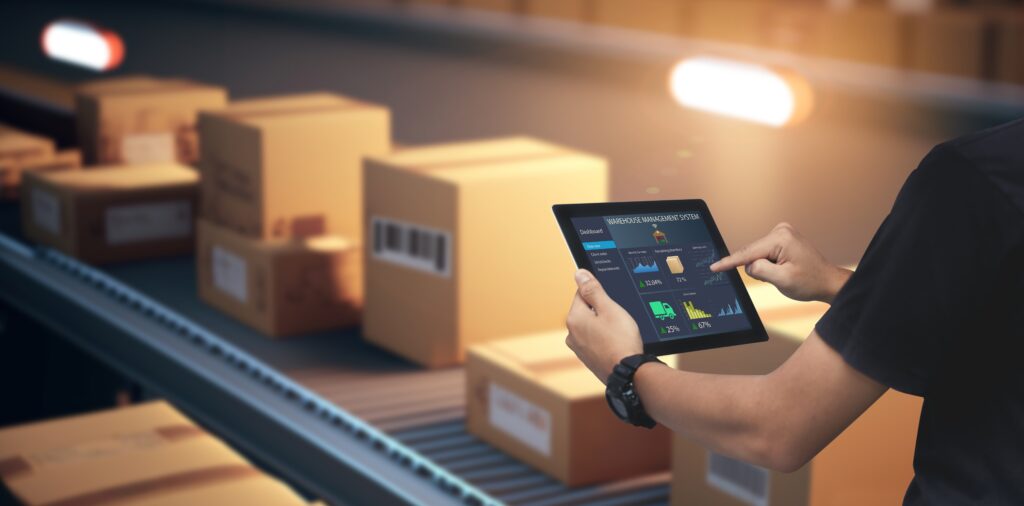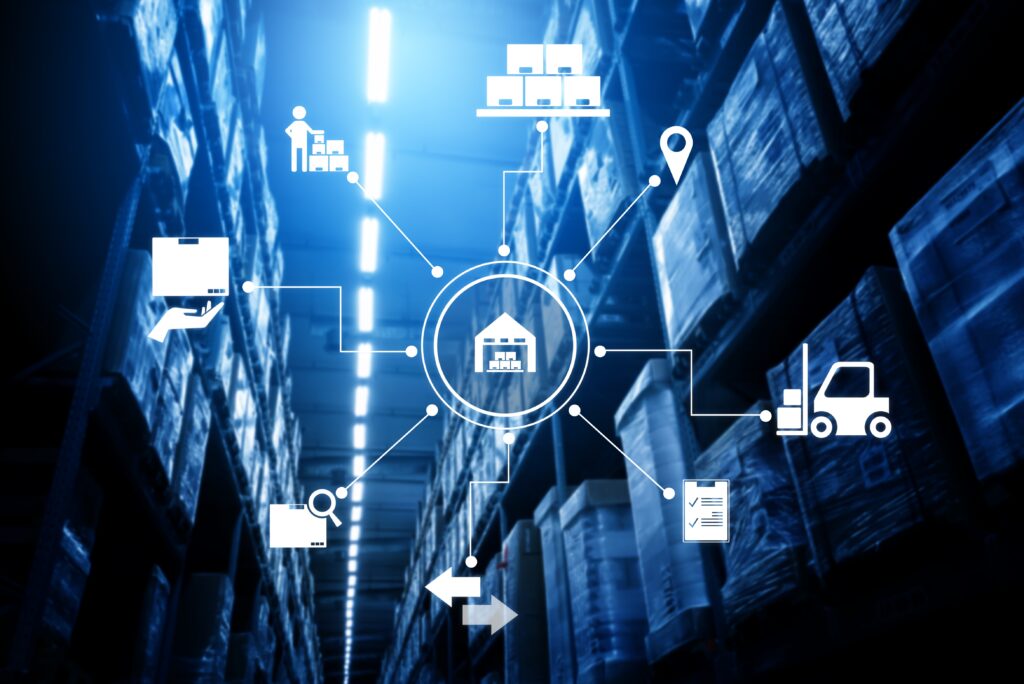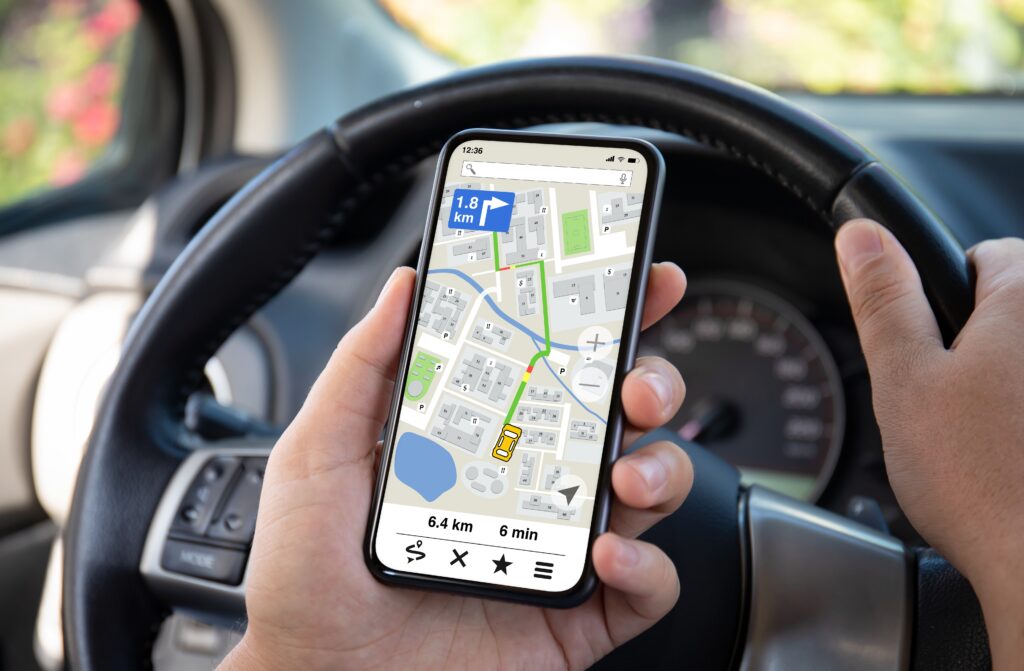
The global delivery market was valued at $15.7 billion in 2019. It is predicted to grow at a CAGR of 20.3% from 2020 to 2030.

This massive growth in the delivery market has offered a bright ray of hope for all the businesses that provide delivery services. The three reasons behind this staggering growth are – Economic expansion coupled with an increase in population across the world has fueled the demand for goods.
Rapid urbanization over the years, improvement in transport facilities, and technological revolutions have led to an overall improvement in the way goods are transported. Increasing penetration of smartphones, easy access to fast internet services, and increasing use of omnichannel retailing have boosted customer preference towards on-demand delivery shopping.
The COVID-19 outbreak had created a major impact on the delivery market last year. Due to nationwide lockdowns and the absence of several physical stores, delivery of foods and groceries exploded due to the lower risk of infection and convenience. The need of the hour for delivery businesses is to manage this rising demand and meet customer expectations today. The only way to achieve this is by outsourcing your delivery operations to a 3rd party vendor.
This blog captures ins and outs of outsourcing delivery operations and the benefits you can reap out of it.
Outsource Delivery Management With Online Delivery management Software
Advancements in modern technologies have increased the level of expectations among customers. They want their goods delivered next to their doorstep with exceptional speed. A survey by Capgemini has found that 40% of the customers stated that timely delivery is an important factor they consider when they are ordering food and groceries online.

Trends like same-day delivery and next-day delivery have gained great prominence among customers. If they are not incorporated as part of the delivery options, businesses can lose a large number of customers. Most prominent players such as Amazon, Walmart, and Instacart offer same-day delivery services with real-time order tracking. Smaller businesses must also offer such services if they have to stay relevant in the modern world.
Businesses have only two options in hand –
- Handle them using in-house.
- Outsource the delivery operations.
Challenges Associated with In-house Delivery Management
For small businesses with an adequate workforce, in-house delivery might seem like a viable option, but it has a lot of operational difficulties such as –
- In-house deliveries require you to manage a dedicated fleet 24X7. If you don’t have enough delivery experience, it might put a burden on your resources, and worse, you might end up losing customers due to poor management.
- “With great power comes great responsibility,” and this works perfectly well for a delivery business. In-house deliveries make you 100% liable for all the misdeeds that are bound to occur.
- The huge costs associated with inhouse delivery can burn a hole in your pockets. It might not be a good option, especially at a growing phase when you have more important areas to spend on.
Why Outsource Your Delivery Services?
Outsourcing your delivery services to a Delivery Management Software (DMS) is the most convenient way to carry out delivery operations. Installing a good DMS will exponentially increase your revenue potential. On that note, here are some more reasons why you should consider outsourcing your delivery operation to a DMS –

- A DMS will cut down your staffing and labor as it offers all the tools for smooth deliveries and makes the whole managing process easier.
- DMS offers an amazing user interface for all the stakeholders. It will be easy to manage even for new employees.
- It employs advanced technologies to optimize the delivery operations and will help you increase the productivity of your staff.
- It allows auto-scheduling of tasks which cuts down the need of manually assigning work to your employees/fleet.
Benefits of a Delivery Management System
A delivery management system is a cornerstone for any delivery business. It comes with unlimited benefits, which are crucial for survival in the present-day competitive market. With a good DMS in place, you can solve all the difficulties in last-mile delivery and empower your delivery staff with everything they need. Here are its different benefits –
Streamline Processes and Automate Workflow
Manual dispatching and delivery often lead to pen and paper mistakes or error-ridden spreadsheets. Manual entry of information will add several steps to your delivery process and creates room for miscommunication. A modern DMS will cut down the number of steps involved in your delivery process and automate your workflow. Some DMSs even offer extensions with advanced features to achieve superior integration with analytical solutions and streamline the delivery process. The best part is getting increased visibility through a centralized system, allowing you to manage your delivery team effortlessly.
Real-time Tracking and GPS Mapping of Drivers
Monitoring a driver’s whereabouts can be tough, even if your team size is small. But with a DMS, every driver will have a mobile app installed with features like GPS, accelerometer, and distance proximity. It allows you to accurately track the driver’s location and get the real-time status of the order. In addition to that, detailed information such as ETA, traffic on the road, time is taken to deliver, and total distance traveled will also be available to you. It eliminates the chances of system manipulation by the drivers. This could be a major relief to companies plagued with issues like misquoted distance covered/working hours by the drivers for reimbursement.

Seamless Communication Across the Entire Fleet
Integrating a DMS in your business will eliminate the need to communicate delivery addresses to the agents manually. A DMS houses advanced features to automate the workflow and enhance the communication of the entire fleet. As soon as the order is received, the DMS automatically sends the order information to a delivery agent nearby. As the whole process is communicated through a mobile app, it eliminates the need to write down the addresses and helps the drivers be on top of their operations.
Increased Customer Satisfaction and Retention
With a good DMS, you can constantly update customers regarding the order’s status through instant notifications during the entire delivery lifecycle. For example, when the order is dispatched, the system automatically sends real-time notifications to the customer so that the customer can stay at peace during the time of delivery. The system also offers excellent delivery support so that the customer can enquire directly from the delivery agent if they have any queries. Customers usually love the extra effort you put into improving communication, which ultimately enhances customer satisfaction and increases brand loyalty.
How Does a Delivery Management System Help in Resource Optimization?
For a business to travel through the highly competitive delivery market, it is imperative to utilize the existing resources optimally. Efficient resource planning and allocation is critical for the business to enhance operational efficiency, prevent employee burnout and cut down unnecessary operating costs. Integrating a DMS will help you strike the right balance between resource optimization and efficient delivery management. Here’s how it’s done-
Route Optimization
Planning the fastest and most efficient route is crucial for a business to deliver packages on time. DMS has a route optimization feature that provides the best route based on location proximity, traffic conditions, and driver availability to deliver your orders with the most organized use of resources.
It takes into account the limited delivery time window/multiple drops and helps drivers make more deliveries in less time. Honestbee, an online food, and grocery delivery service company, integrated Tookan DMS in its delivery process and improved its operational efficiency by 18%.
Fuel Costs

Reducing fuel costs, in general, does not mean seeking a reduction in the price of fuel but the implementation of the best practices to reduce the overall fuel consumption dramatically. DMS will increase fuel efficiency by calculating the best route, thus allowing drivers to save fuel and time. Most DMSs help improve other factors that can impact fuel consumption –
- Reducing idling time of vehicle by choosing the least crowded route.
- By locating the nearest driver.
- Monitoring driving style and prevent bad habits such as overspeeding and harsh braking.
Jugnoo, an e-hailing taxi app, had saved 50% in fuel costs and increased its operational efficiency by 43% by optimizing routes through outsourcing its operations to a DMS.
Driver Efficiency
To run a successful delivery business, every driver should increase the number of deliveries they make in a day. However, more deliveries mean more time behind the wheel, which makes the drivers exhausted and affects their productivity. By optimizing routes, a DMS will boost the driver’s morale and ensure that they spend optimal time on roads without affecting their health. This leads to faster deliveries.
Use Cases of a Delivery Management System

Last-mile Deliveries
Tech advancements like real-time tracking and routing optimization have empowered DMSs to offer end-to-end last-mile delivery solutions to all businesses. A DMS helps in proactive delivery monitoring by analyzing historical data and patterns and accurately predicting delivery time. You can also improve customer experience by providing delivery transparency to the customers through a last-mile tracking platform.
Workforce Management
Last-mile Deliveries A DMS offers flexible and affordable workforce management solutions. It has a unified scaling platform to hire, manage and schedule field workers. It is built in such a way that it reduces man-hours and increases productivity. Below are the features offered by DMS for better workforce management –
- Real-time tracking options to increase workforce efficiency.
- Easy appointment management by notifying the drivers on the mobile app through push notifications.
- Generate earning reports to eliminate errors while calculating payroll.
- Manage the entire workforce on a single window dashboard hassle-free.
Scheduling Appointments
DMS has proper appointment scheduling software that allows easy online scheduling. You can enable clients to schedule appointments anywhere and anytime. It gives you a bird eye view of all the appointments and helps you monitor and manage your services on any device at any time. It even lets you manage overtime and time off. Some DMSs let you integrate advanced business analytical tools with appointment scheduling tools to help you analyze trends and make intelligent business decisions.
Dispatch and Routing

DMS helps you easily manage the entire dispatch process through cloud-based service dispatch software. It offers auto pickup by sending a delivery alert to the nearest agent and gets the deliveries auto-assigned to them. It even offers “performance analysis monitoring” by monitoring the number of deliveries, reviews of delivery agents, and delayed/canceled orders to help with the employees’ appraisal.
Cost Analysis of a Delivery Management System
To perform a cost analysis of a DMS, you need to consider the factors below –
Features
Features and capabilities determine the cost of a delivery management software. If you are a small business looking for a DMS with basic features, it would cost less. However, large businesses that require enterprise-grade solutions with a lot of specific or custom add-ons can cost more. Depending on the nature of the industry and the size of your fleet, the cost of DMS can vary.
Deployment
When it comes to deploying DMS, there are two common methods: on-premise and Software as a Service (SaaS) On-premise delivery management software requires you to purchase a one-time license that allows you to use it on your private infrastructure.
Though the operating expenses are low in on-premise software, you have to pay extra costs for every new software update. In contrast, SaaS-based solutions cost very little. Instead of paying a considerable sum for purchasing a full license, you can subscribe to it either monthly or annually.

You don’t have to face difficulties integrating the software into your private infrastructure as it can be accessed via the public cloud. There are also no extra costs involved in software updates
Length and Size of the Contract
DMS providers offer subscriptions in 12, 24, 36-month contracts. The longer the contract, the cheaper the DMS gets. This is to incentivize your long-term commitment. The cost also depends on whether you pay monthly or annually. Typically, it costs less if you decide to pay annually.
The size of the contract depends on the number of deliveries you can make or the number of drivers in your delivery team. Some providers calculate the cost based on your requirements regardless of the subscription length.
Cost of Delivery Management Software
Based on the different features and plans, the cost of a DMS varies between $149 to $290 monthly for a medium-sized business. The average price of delivery management software is around $180 per month.
DMSs like Tookan offer world-class services at highly competitive prices, with the lowest plan starting from $29 for a small business. Here is the annual pricing plan of Tookan –
Check out the full pricing here.
How has Tookan Helped Companies Outsource Their Delivery Management?
Tookan is one of the top delivery management software companies that offer end-to-end delivery management solutions. It enables its partners to achieve operational efficiency and helps them maximize ROI.
Tookan offers advanced tailor-made solutions for efficient dispatching by saving your cost and time. Here are some of the popular companies that have outsourced their delivery management to Tookan –
Washmen
Washmen is a mobile-based laundry service based in Dubai and Abu Dhabi. It was facing numerous challenges, especially related to resource management. The major challenges they faced were related to the management of logistics and transparency in the delivery process. Tookan intervened and enriched Washmen’s delivery by introducing –
- Real-time tracking of vehicles and driver’s performance.
- Route optimization and automatic scheduling.
- BI-based analytics that generated data to optimize fleet management.
As a result, Washmen witnessed an increase in operational efficiency by 15%, which enabled them to handle a whopping 24000 monthly transactions.
Jugnoo

Jugnoo, an e-hailing taxi app, faced a lot of challenges while expanding to other cities. They struggled to handle multiple deliveries due to miscommunication and improper fleet management, which led to wastage of fuel and man-hours. Jugnoo soon outsourced its delivery operations to Tookan, enabling route optimization, real-time tracking of orders, and auto allocation to deliver services on time. Soon, they witnessed a 50% reduction in fuel costs and increased operational efficiency by 43%. This led to an increase in transactions by 40000 per month.
Honestbee
Honestbee, an online food and grocery delivery company, had faced several challenges in handling on-time delivery. They found it challenging to scale and track field agents. After outsourcing to Tookan, they conquered these challenges by using Tookan’s real-time tracking and auto-assignment features. Today, it has become one of Asia’s leading delivery service companies. Tookan has improved its overall efficiency by 18%, and the number of transactions has increased to 100000 per month.
Summary
The concept of on-demand delivery became hugely popular in 2020 due to the pandemic. Today, there is a change in consumer behavior due to the convenience and personalized experience offered by e-commerce businesses.
Businesses that offered top-notch delivery witnessed huge sales and profits. But the management of the delivery process had become highly challenging due to colossal order volume. Improper delivery management due to poor resource allocation had become a nightmare for businesses.

This is where outsourcing your delivery management operations to a DMS can help. A typical DMS comes with cutting-edge technologies and features that simplify your entire delivery management process and increase operational efficiency. It allows you to monitor and manage your entire fleet with ease.
DMSs like Tookan offers an attractive user interface that enhances user experience and helps to onboard employees quickly.
In summary, Tookan offers a wholesome omnichannel experience in managing your delivery process. So, what are you waiting for? Become one of the top delivery businesses by partnering with Tookan today. Contact us now.
Subscribe to stay ahead with the latest updates and entrepreneurial insights!

Subscribe to our newsletter
Get access to the latest industry & product insights.





















